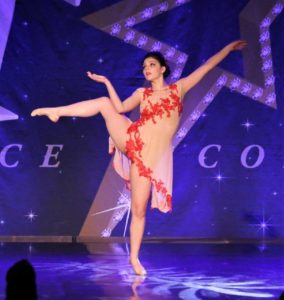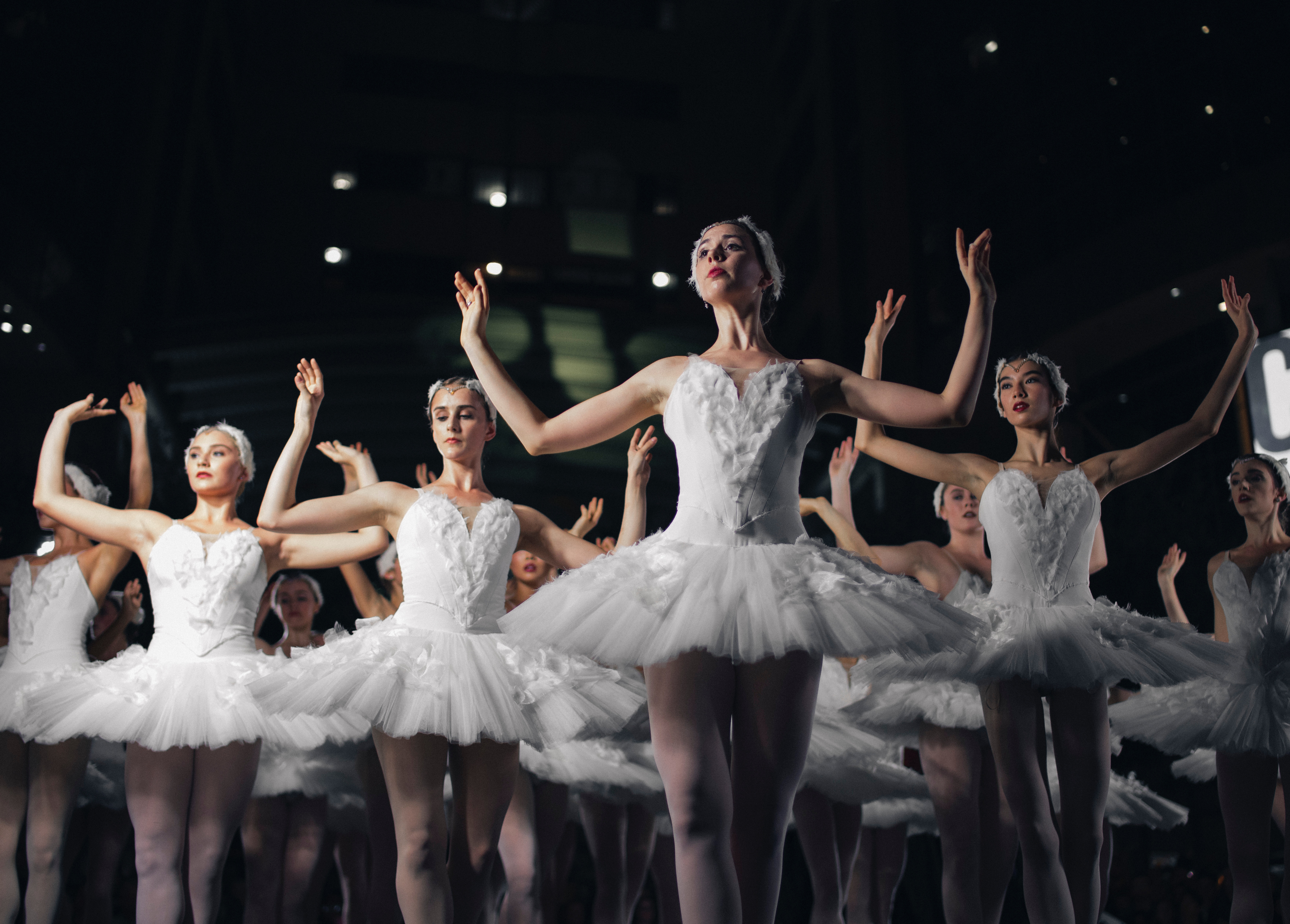During the weekends, you can find dancing all over downtown Iowa City. I mean, who doesn’t love dancing off a stressful week with a night filled with friends? But some dancers, like Sarah Skilling, find themselves at a different kind of “barre” during the week.

Skilling is a second-year dance major at the University of Iowa. She spends most of her days in Halsey Hall, the home of the Dance Department. Hundreds of people pass through those doors every day for yoga, beginner and intermediate classes, and much more. Yet, many people don’t know or understand the happenings of the Dance Department, specifically what it takes to be a dance student. In a one-on-one interview with Skilling, people outside of the dance community can get the inside scoop on the life of a dance student.
Sarah knew that she wanted to be a dance major since a young age.
“I was in fourth grade, and a dancer that went to the studio I grew up at went to the University of Iowa and was in the Dance Department. That was the first time I realized you could actually go to college to study dance and get paid to dance as a career.”
Now that Skilling is studying dance at Iowa, she maintains a busy schedule. A typical day for Skilling includes taking a number of classes including ballet, modern, choreography, and Brazilian Culture and Carnival. She also squeezes in a 50-minute lunch break and usually ends her school day around 5 o’clock. After classes, Skilling has rehearsal from around 7:00pm to 11:00pm.
See Sarah perform in Iphigenia Point Blank: Story of the First Refugee November 1 to November 11. Visit the UI Theatre page here to find out more about this performance.
Danica Clayton: “What dance classes do you take outside ballet and modern technique classes?”
Sarah Skilling: “I took Improvisation I last year. I was so nervous, because I never had an experience like it and it always makes me nervous when someone says, ‘Oh just improv.’ But I actually ended up loving it. It was cool because it wasn’t about your technique, necessarily, or about having the coolest moves. You could truly investigate what felt good in your body or if you had a curiosity about something you could just play with it. Dance and Society was a good class too, because it was a lecture instead of a dance class. We got to learn about different cultures and how they incorporate dance into rituals and traditions. We also learned how dance fits into everyone’s life in some way or another. It was cool connecting things together and understanding it in a way that didn’t have to be traditional dance technique.”
DC: “What are some of the major differences you find between dance classes and other classes?”
SS: “One of the biggest differences I’ve noticed is in a dance class, it is mentally and physically demanding. Especially after having three dance classes in a row then a lecture. In lecture, I realize how tired I am from being up and moving all day.
What I like so much about dance classes is that you are applying it as you’re learning it, which has always made more sense in my body. Physically acting makes more sense to me, probably because I have been dancing for so long.
I also like how there is not much homework. For instance, we sometimes have to write a one-page paper. Also, in dance classes we don’t really have tests. We are being tested every day, based on how we are applying what the professors are trying to teach us. I feel like that is less stressful sometimes. You could be in a lecture every day putting in the work, but the test grade is what is going to define your final grade. But in these dance classes we have every day to show these teachers that we are learning and applying. It is a longer process and the results are more visible. So, go dance!”
DC: “If you could tell non-dance majors something about being a dance student, what would it be?”
SS: “I would have to say, respect what you don’t understand. A lot of times people say ‘Oh you are a dance major,’ but it shocks them when we are walking around sweating. Or they don’t think it is a real major or think a person must not be smart enough to be doing something else. Even if you don’t understand it, it is so important to someone else. So just respect it, please.”
Being a dance major is a lot of fun says Skilling, “We don’t have to sit in a desk and take notes, we get to groove around, which honestly how could you not want that?!” She gets to spend her days doing what she loves in a non-traditional way. While being a dance major can be rewarding and fun, it is not always easy. Skilling says she has struggled emotionally with dance. She explains, “We are basically staring at ourselves in a mirror all day and trying to perfect or improve the things we are not good at.” It becomes more challenging to her when she compares herself to other dancers and when certain critiques from professors hit hard. She struggles saying “The hardest part is remembering why you’re here, why you love it, and why you are going to keep showing up and pushing yourself every day, even the days you really don’t want to put on a leotard.”
DC: “What are some things you have learned by being a dance major?”
SS: “Two big things. When I moved up to Majors I, especially in ballet since I am not extensively trained in ballet, it really pushed me out of my comfort zone. It was good for me, because if you’re going to be a dancer you have to be willing to try things you don’t understand and do it with confidence. The other thing is that a lot of dancers are perfectionists, but last year I was taking it to a place where it was emotionally tolling. I thought I was terrible, because I was comparing myself to other dancers. I was thinking they have way more training than me, and they were way better than me. Instead of telling myself it’s okay, I was tearing myself apart. It is really hard to find the balance between pushing yourself to always be better and noticing what needs work on, but also realizing this is the best I can give today, and I’m going to have to accept that. Both those things were great to realize last year because this year I am really working on welding it all together. These are two things I can apply not just in dance but in life. I wouldn’t have gotten there without dance.”
DC: “What are your plans with your dance degree?”
SS: “The biggest dream is to dance in a professional modern company. I would like to be in a smaller company because there is a bigger chance for you to really get to know who you are working with. I think the process is just as important as the final show or outcome. So, I would really like to be able, in whatever I end up doing, to dive into it and really understand the people I am working with and the process.”

Dance as a field of study in higher education is confusing to many, but to many others, like Sarah, it makes sense. It gives some the opportunity to hone a skill they have worked on since their youth and discover things they couldn’t find elsewhere.
All in all, being a dance major is not for the faint of heart, but neither is college. Taking a closer look at the life of a dancer you see that they are not much different than any other college student. Sarah came to college looking to do what a lot of other University of Iowa students are doing, following their passions and looking to capture their dream job.
So, next time you see someone in tights, sweat rolling down their forehead, and ballets shoes clipped to their backpack, remember we are all here for the same reason… to get that degree.

